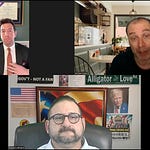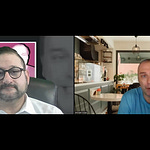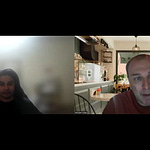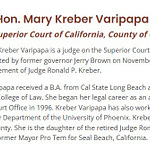We had another exciting episode of The Unknown with Richard Luthmann.
In particular, we talked about Chris Mackney.
Mackney committed suicide on December 29, 2013.
His was one of the first family court cases to attract mainstream attention.
That’s largely because his ex-wife, Dina Mackney, attempted to copyright the suicide note he wrote before committing suicide.
I played a role behind the scenes in all this- check out my book: Bullied to Death Chris Mackney’s Kafkaesque Divorce- and here is what happened.
Chris wrote his suicide note a couple days before committing suicide and published it on his website, which has since been removed.
The suicide note did not paint his ex-wife, Dina Mackney, or her father, Pete Scamardo, in a positive light.
Make no mistake, this case was never about money or the children. My ex wife’s multiple requests that I leave town and give up my children is evidence of that. It was about a pathological need for control and domination. I saw behind the mask and the facade and I needed to be eliminated, just like Sam Degelia needed to be eliminated for discovering Pete Scamardo was trafficking heroin. The plan was to have attorneys negatively interpret anything I say or do and then litigate every issue. I needed to be portrayed as the source of conflict, so the legal and financial pressure could be applied. With no money, I could not afford an attorney to protect me. By denying access to the Children, they would use any reaction from me to distract from the real problem. My reactions to being abused, controlled, bullied and alienated were not the source of conflict. When I spoke out or asked the Court for help, I was ignored and silenced. The patterns of high conflict behavior exist throughout my ex wife and her family’s past. I only pointed out how the pattern seemed to match the patterns also found in ‘high-conflict’ divorce.
Refusing to negotiate or resolve differences outside of Court and then paying attorneys over $1 Million in legal fees does not lead to peace. But, that was the point. I never wanted to speak out and cause any embarrassment to my children or my ex-wife. I swear I didn’t. I only wanted to be away and free from my ex-wife and be the best father I could be. I made countless offers to settle and asked what they wanted to keep us out of Court. I never received a response to any of my requests or proposals. Actually, I did get one proposal the night before our Division of assets hearing, that was completely in bad faith and unlivable. It was not a ‘good faith’ effort.
They finally told my attorney in 2011, that if I left town and gave up all efforts to see my children, that would end the conflict. I wanted so much to be free of the litigation and the madness that I did just as they requested. I left town and moved to Dallas, TX, thinking I would never see my children again, but at least the nightmare would be over. it broke my heart and my spirit, but at least I didn’t have to worry about going to jail (or so I thought). I got a job and started going to the gym, trying to get healthy again. The first month I was in Dallas working, my ex-wife tracked me down and had Child Support Enforcement come after me. Now that I was in Dallas, I would have no ability to go to Court to change the order. When I appealed to my ex-wife’s attorney, requesting that they voluntarily lower my child support, they refused to respond. I had no leverage, so I said that if they do not voluntarily agree to a reduction, I would have no other choice but to speak out about the abuses. They decided that I was trying to extort money from them, even though I left town, as requested, and took my emails to the Commonwealth’s attorney to have me arrested for attempted extortion.
Dina sprang into action and had the website removed, but not before numerous people- including me- saved all the work.
I shared the suicide note with Henry Makow, a conspiracy theorist with a fairly large following from Canada. Henry made a fortune from the boardgame Scruples.
After Henry published the suicide note in early 2014, several other websites, including A Voice for Men, also published it.
Had Dina left well enough alone, it would have ended there. Though the momentum from the suicide note had waned, Dina did something extraordinary.
She went to a state judge and received copyright over Chris’s suicide note, arguing that since he died without a will, she and their kids were his next of kin.
She then used that copyright to remove the suicide note from existence.
She nearly succeeded; except she tried to have A Voice for Men (AVFM) remove it. Rather than removing the original suicide, AVFM published a new post on this suicide note. That went viral, and a bunch of other places also published the suicide note. Several people went onto YouTube to read the suicide note.
Dina’s stunt blew up in her face, and there was no way to ever remove the suicide note again.
Paul Elam, who operates the Voice for Men website, said the note was posted months ago in the site’s online forum, and he considered doing a feature on it but could not verify its claims.
But he said the cease-and-desist letter resolved those issues to his satisfaction, and he reposted an excerpt from the suicide note in story posted on the site’s front page.
“We reject the notion that our publication is in violation of copyright laws, and that the suicide note is not covered by fair use statutes,” Elam wrote. “We also believe, given the horrific state of our family courts, it is in the compelling public interest that his final words be published and disseminated as robustly as possible.”
Her father, Pete Scamardo, died less than a year after my book came out. The family chased the shadows of Mackney’s suicide note for years.
Scamardo, at the time Chris married his daughter, was a successful real estate developer in Virginia.
Pete Scamardo was the founder and leader of Centennial and he gave Charlie the opportunity to learn and grow very quickly as the company developed 24 office buildings from 1982 until 1988. While at Centennial, he saw the company grow from 15 to 95 employees in 1988 and then when the “crash” hit in 1990, the company then reduced back to 15 employees again with massive layoffs. 23 of the 24 buildings were given back to their lenders from 1990 to 1992. (12:35)
Scamardo was featured in the Washington Post and other media. Always, he was featured as an upstanding citizen.
He was no upstanding citizen. In 1968, desperate for cash, he hatched a hairbrained scheme. He hired Charles Harrelson to kill his business partner, Sam Degelia, to collect on the insurance money.
Sam left a widow and four kids under ten. Harrelson killed Degelia by shooting him in the back of the head and leaving him in a field, like an animal.
Though money struggles triggered the murder, Scamardo hired legendary and notorious attorney, Percy Foreman, to defend him. He was found guilty of accomplice to commit murder and given the eye-popping sentence of eight years’ probation.
The only time he spent in jail was after his arrest, before getting bail.
Harrelson served five years, and he got out in time to kill Judge John Wood, the only federal judge murdered in the 20th century.
Harrelson left a wife and three kids to start his life of crime, but his kids found success, particularly Woody, whose acting career is well documented.
None of this Chris knew when he married Dina. In fact, he found out by chance just as the divorce was unfolding.
Dina, funded by her father, hired new lawyers who advertised, “We’re not the type the settle, so have your wallet open.”
Then, everything was litigated. Chris quickly ran out of money, Dina did not since she was funded by her father.
He spent an estimated $1.2 million, a small pittance of the roughly $50-100 million he was worth.
The goal was to destroy Chis so he could not expose Scamardo’s past. Chris was jailed four times.
The worst indignity was when he spent ten days in jail for adding Scamardo to Harrelson’s Wikipedia page.
Harrelson was tried for the 1968 murder-for-hire killing of Sam Degelia Jr., a resident of Hearne, Texas. Harrelson was paid $2,000 (the equivalent of $18,000 in 2020) for the murder of Degelia, a grain dealer and father of four who was killed in McAllen, Texas.[9] His first trial ended with a deadlocked jury,[9] although Pete Scamardo was also tried in the case, found guilty of being an accomplice to the murder,[10] and sentenced to seven years probation.[11][12] Harrelson was retried in 1973, convicted, and sentenced to 15 years in prison.[13] In 1978, after serving five years, he was released early for good behavior
The court ordered Stanton Samenow to do a custody evaluation. Samenow knew about the murder but called it “the felony from the 1960s.”
Samenow chided Chris for fixating on the “felony from the 1960s.” Upon his recommendation, the judge ordered Chris to talk about it no more.
Since Chris added this entry to Wikipedia, that was viewed as contempt of court.
Chris lost all access to his kids. In fact, the judge used the fact that Chris did not provide a lease to a new apartment as a reason to cut off access.
The case was rigged. Chris was ordered to pay nearly $3,000 per month in child support at a time when his income was zero.
He was even arrested in Texas, where he moved for a new start, on extortion charges after he threatened to go to the media if his child support wasn’t reduced.
By the end, he was alone, helpless, and hopeless. He killed himself on, December 29, 2013.

















